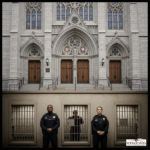Yes, Sexual Orientation is Protected

This past summer, the SCOTUS issued a decision that impacts how employers treat sexual orientation and gender identity in the workplace. The decision addressed three legal cases all at once, and they are as follows:
-
R.G. & G.R. Harris Funeral Homes V EEOC & Aimee Stephens
-
Bostock V Clayton County
-
Altitude Express Inc V Zarda
In the first case, R.G. & G.R. Harris Funeral Homes V EEOC & Aimee Stephens, there was no question about why Aimee Stephens was fired. In the remaining cases, the question of whether Gerald Lynn Bostock or Donald Zarda were discriminated against due to their sexual orientation was NOT decided by the June 2020 decision. The question that was answered was, “Do employees had the right to bring a claim of discrimination based on sexual orientation?”
Aimee Stephens was fired from her job after she gave notice that she intended to publicly transition from presenting as a male to living as a woman. She wrote her employer a letter indicating that she would be adhering to the female dress code and disclosed what her name would be. When she returned she was told that her services would no longer be needed and offered a severance package in exchange for agreeing to silent. Ms. Stephens declined the severance package and “took it to court”.
Ms. Stephens lived and worked in Michigan (Sixth Circuit), which did not have State laws establishing protections around gender identity. Thus, when she filed her lawsuit on the basis of gender identity discrimination, the question before the courts was NOT, “Did R.G. & G.R. terminate Aimee Stephens because she is transgender?” Instead, the question was “Does the EEOC protection for “sex” extend to cover gender identity and sexual orientation discrimination?” In Mrs. Stephens case, it was clear why she’d been terminated and her employer didn’t deny it. The Sixth Circuit Court of Appeals ruled that Aimee was unlawfully fired and that federal sex discrimination laws protect transgender people. Then, the Supreme Court was asked to consider whether it is sex discrimination under federal civil rights statutes to fire someone because the person is transgender.
In the remaining cases, Bostock V Clayton County (Georgia) and Altitude Express Inc V Zarda (Calverton, NY), the SCOTUS decision didn’t address the plaintiffs’ claims of whether they’d been terminated either. Again, the question was about whether the plaintiff was protected by EEOC regulations. In Bostock V Clayton County, Gerald Lynn Bostock had worked for the county for 10 years and had consistently received positive performance reviews. However, after he joined a gay sports league and promoted it, he was publicly ridiculed for being gay and being part of the league and subsequently told that his work would be audited. Then, he was told that there were problems with the funds that he managed and terminated for conduct unbecoming. Further, Bostock lives in the State of Georgia, which does not provide protections for sexual orientation, gender identity, or gender expression. In rejecting Bostock’s claim, the Courts (Eleventh Circuit) referred to Evans V. Georgia Regional Hospital as precedent for the basis for rejecting sexual orientation as a protected class. In the Evans case, Evans, a lesbian, brought a claim stating that she’d been discriminated against due to her sexual orientation and being gender non-conforming. Her claim was upheld on gender non-conformity as being steeped in stereotypes, but the sexual orientation aspect of her claim was dismissed as unprotected. Again, lack of clarity regarding whether EEOC regulations covered sexual orientation was at issue because the language did not explicitly address sexual orientation.
In Altitude Express Inc V Zarda (Note the order of the litigant which show that the employer is suing the former employee). Donald Zarda worked as a skydiving instructor who did tandem dives with clients (tandem dives require student and teacher to be connected very closely via a harness). He was terminated after a client complained that he had touched her inappropriately. When the client made the complaint, she disclosed Zarda’s sexual orientation, homosexual, which he’d disclosed to her in an attempt to make her feel more comfortable. When Zarga brought his claim, he sued under NY State law and based on EEOC regulations. The District Court upheld Zarda’s claim of sexual orientation discrimination under New York’s non-discrimination law that explicitly covers sexual orientation but rejected Zarda’s motion under Title VII. Then, there was a jury trial which resulted in a verdict in favor of the defense. In the meantime, the EEO issued an opinion saying that sexual orientation was covered. Then, Zarda asked the Second Court of Appeals (Second Circuit) to overturn its precedent setting case that said gender was not protected so that he could recover with the new EEOC opinion in mind. The second circuit court did just that and overturned its previous decision. In turn, Altitude Express Inc, appealed to the US Supreme Court to review the decision. The question for the Supreme Court was the same here: do EEOC regulations include sexual orientation, gender identity and gender expression? If it did cover those identities, Zarda would have the ability to choose which the venue, state or federal court, wherein to bring his claim.
Not only did these three cases keep pointing to the same question, the circuits were starting to produce conflicting decisions. Thus, all three were heard before the Supreme Court at the same time.
The SCOTUS decision, that sexual orientation and gender identity were protected, granted the plaintiffs, Bostock and Zarda (actually, it was Zarda’s estate because Zarda died in a skydiving accident before the SCOTUS decision was made) the unmistakable right to sue their employers. The SCOTUS decisions gave the legal ability to bring a claim; it was not a decision regarding whether their employers actually discriminated against them. Meanwhile, it also affirmed Aimee Stephens’ claimed (She passed away in May of 2020, before the decision was issued).
What was the decision? The Court Majority (6-3) issued an opinion that explained it’s rationale as follows: Justice Gorsuch framed the question before the court as a straightforward one: “Today,” he wrote, “we must decide whether an employer can fire someone simply for being homosexual or transgender.” The answer to that question, he continued, “is clear.” When an employer fires an employee “for being homosexual or transgender,” that employer “fires that person for traits or actions it would not have questioned in members of a different sex. Sex plays a necessary and undisguisable role in the decision, exactly what Title VII forbids.”





